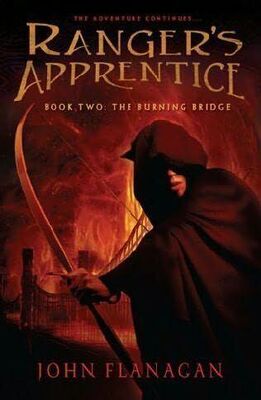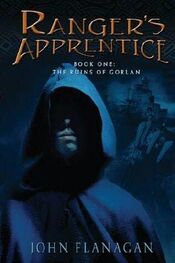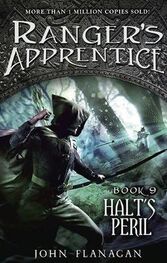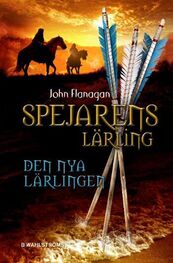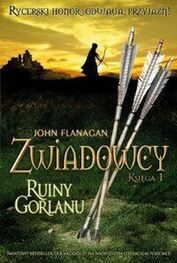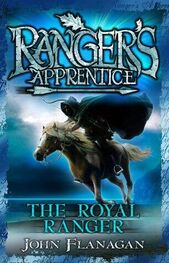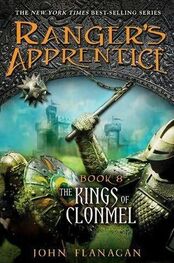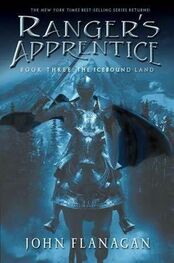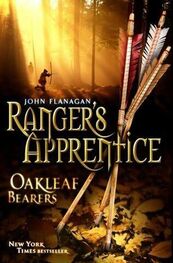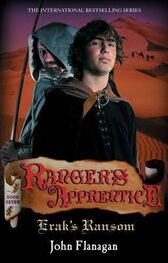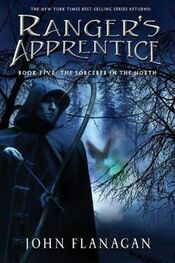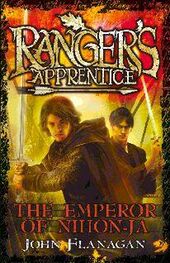"Advance," he said softly. Then, as the bugler beside him didn't hear the words, he turned, his face expressionless, and whipped the man across the face with his leather-covered steel riding crop.
"Sound the advance," he repeated, no more loudly than before. The bugler, ignoring the agony of the whip cut and the blood that poured down his forehead and into his eye, raised a horn to his lips and blew an ascending scale of four notes.
Along the lines of the Wargal army, company commanders stepped forward, one every hundred meters. They raised their curved swords and called the first few sounds of the Wargal cadence. Like a mindless machine, the entire army took up the chant immediately-this one set at a slow jog pace-and began to move forward.
Morgarath allowed the first half-dozen ranks to pass him, then he and his attendants urged their horses forward and moved with the army.
The Lord of Rain and Night felt his breath coming a little faster, his pulse beginning to accelerate. This was the moment he had planned and waited for over the past fifteen years. High in his windy, rain-swept mountains, he had expanded his force of Wargals until they formed an army that no infantry could defeat. Without minds of their own, they were almost without fear. They were inexorable. They would suffer losses no other troops would bear and continue to advance.
They had only one weakness and that was facing cavalry. The high plateaux were no place for horses and he had been unable to condition their minds to stand against mounted soldiers. He knew that he would lose many of his own troops to Duncan's cavalry, but he cared little about that. In a normal confrontation, the King's cavalry would be a decisive factor in their battle. Now, however, split between the Wargals and the attacking Skandians, their numbers would be insufficient to stop him. He accepted the fact that Duncan's cavalry would cause immense losses among his troops without a qualm. He cared nothing for his army, only for his own desires and plans.
"Faster!" he cried, sliding his huge broadsword from its scabbard and wielding it in gigantic circles over his head. The Wargals didn't need to hear the word. They were bound to him in an unbreakable linkage of minds. The cadence of the chant increased and the black army began to move faster and faster.
In front all was confusion. The enemy, first turning to face the Skandians, now saw the new threat developing at their rear. They hesitated, then, for some unaccountable reason, they responded to three horn blasts by drawing to either side, opening a gap in the heart of their line. Morgarath screamed his triumph. He would drive his army into the gap, separating the left and right wings of the army. Once an army's front line was broken, it lost all cohesion and control and was more than halfway defeated. Now, in their panic, the enemy was presenting him with the perfect opportunity to strike deep into their hearts. They had even left the way open to their own command center-the small group of horsemen standing under the royal standard on a hill.
"To the right!" Morgarath screamed, pointing his sword toward King Duncan's eagle standard. As before, the Wargals heard the words and his thought in their minds. The army wheeled slightly, heading for the gap. And now, through the chanting, Morgarath heard a dull drumming sound. An unexpected sound.
Hoofbeats.
The sudden doubt in his mind communicated instantly to the minds of his army. The advance faltered for a moment. Then, cursing the Wargals, he drove them forward again. But the hoofbeats were still there and now, peering through the clouds of dust raised by the enemy army, he could see movement. He felt a sudden, overpowering surge of fear and again the Wargal army hesitated.
And this time, before he could mentally flail them forward, the curtains of dust seemed to part and a wedge of heavy cavalry, fully armored and at the gallop, burst into sight, less than a hundred meters from his army's front line.
There was no time to form into the sort of defensive square that was infantry's only hope against a cavalry attack. The armored wedge smashed into the extended front line of the Wargals, collapsing the formation and driving into the heart of Morgarath's army. And the farther they penetrated, the wider the gap became, as the wedge shape split and separated the Wargals, just as Morgarath had been planning to do to his enemy. Now Morgarath heard one long, rising horn blast in the distance. Standing high in the stirrups, he cast his glance left and right, and saw, from either wing of Duncan's army, more cavalry deploying, driving in on his flanks, smashing his formations. Dimly, he realized that he had exposed his army to the worst possible situation that he could have contrived: caught in the open by the full force of Duncan's cavalry.
Over the years, Sir David of Caraway Fief had studied the tactics of cavalry in battle. He knew that the major effect of a cavalry charge came in the first moments of thunderous impact as horsemen drove into an enemy line. With the full momentum of the charge behind them, their three-meter-long lances smashed through armor, flesh and bone and hurled enemy troops back in disarray, to be trampled under the horses' hooves. But once the horsemen lost their momentum, and a general melee formed, that major advantage was lost.
Accordingly, he had trained the Araluen cavalry in a new series of maneuvers. After that first thundering charge, the cavalry that had hit the center of the Wargal line withdrew and quickly reformed.
Each company of eighty cavalry men now split into four arrowhead formations of twenty troopers each-the formations riding one behind the other. The cavalry approaching from either wing were already deployed in the same formation. Now, as a bugle signal sounded, they employed a tactic that Sir David had christened The Hammerblows.
The leading arrowheads thundered forward and crashed into the Wargal line, scattering dead and wounded Wargals to either side as they drove in. Then, before their momentum was lost, they pivoted their horses and galloped away, splitting to either side.
A few seconds behind them, the second wave was already at the gallop. Giving the Wargals no chance to recover, they smashed into the line, lances thrusting, horses trampling.
Then, before the Wargals could come to close quarters, the second arrowhead swung about and withdrew, making room for the third wave to come crashing in after them.
As the fourth squadron began to gallop forward to attack, the first was already re-forming behind them, ready to begin the whole process over again.
All along the line, the Araluen cavalry hit the Wargal army with a rapid, nonstop series of devastating hammer blows, sending the savage, bearlike soldiers reeling at twenty different points, cutting the line into a series of disjointed, uncontrolled groups, which were then struck in their own turn.
From his central vantage point, Morgarath watched, enraged, as his line was systematically cut to pieces. There was no tactic he could devise to counter Sir David's brilliantly executed battle plan. Even if there had been, he could never have communicated it to the Wargals. Their simple minds understood basic commands-advance, fight, kill. Their major advantage in battle was their implacable savagery, and their total confidence in their own eventual victory. But now there was a new presence on the battlefield, casting its shadow over the Wargal army.
Fear.
They had an innate fear of cavalry and Morgarath sensed the first flickering premonition of panic and defeat among them. He tried to force them forward, willing them to advance. But their fear and their helplessness against these new Araluen tactics were too strong. They still fought ferociously, and their swords and short spears took a fierce toll on those horsemen they could reach. But their resolve was beginning to buckle, along with their formation. And Morgarath knew it.
Читать дальше